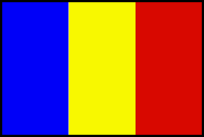Romania in Space
 Romania is known as one of the countries with aerospace tradition, which possess the necessary qualities to support efforts in this direction, over time Romanian researchers contributing to more than 30 scientific and technological space missions. In 1968 was established the interministerial committee CRAS - the "Romanian Commission for Space Activities", whose purpose was to coordinate the development of national space activities. The establishment of the committee came at the same time with the international development of Intercosmos Programme in 1967, though which many countries discussed in order to establish a cooperation for space exploration.
Romania is known as one of the countries with aerospace tradition, which possess the necessary qualities to support efforts in this direction, over time Romanian researchers contributing to more than 30 scientific and technological space missions. In 1968 was established the interministerial committee CRAS - the "Romanian Commission for Space Activities", whose purpose was to coordinate the development of national space activities. The establishment of the committee came at the same time with the international development of Intercosmos Programme in 1967, though which many countries discussed in order to establish a cooperation for space exploration.
The commission was tasked to develop future plans for space research in Romania and to fund initiatives in this direction. Its activities were focused on areas such as physics, medicine, biology, communications, meteorology and remote sensing. CRAS was composed of representatives of the ministries interested in scientific research, the use of outer space for peaceful purposes and the development of space technologies, as well as experts from research and higher education institutes.
During 1965-1991, Romanian researchers, along with those from Central and Eastern European countries were involved in the "Intercosmos program". The first space experiment with Romanian participation was achieved in 1972, aboard the INTERKOSMOS 6 artificial satellite. Two years later, another Romanian experiment was sent into the circumterrestrial orbit aboard the COSMOS 690 satellite, followed in 1978 by another experiment on board the INTERKOSMOS 18 satellite. Each of these experiments opened new research directions in Romania, directions which were later strengthened.
On 14 May 1981 Romania sent the first cosmonaut in space, being the 11th country in the world to achieve this. Dumitru-Dorin Prunariu conducted experiments almost entirely Romanian in space, made either by Romanian researchers only or in collaboration with researchers from other countries. Until the cosmic flight of Dumitru-Dorin Prunariu, Romania had managed to get a total of 17 facilities and devices in space aboard the rockets of the Intercosmos program.
The Romanian Commission for Space Activities dealt also with international agreements. Romania was among the first Eastern European countries to sign collaborations with NASA in the 70s, taking and processing the images from Americans satellites. Romania also had agreements with countries in western Europe, such as the agreement with France, through which the Romanian specialists were sent to Toulouse to prepare in the satellite remote sensing field.
Since 1991, the coordination of the space activities in Romania and stronger collaboration in European and international space programs is achieved through the establishment of the Romanian Space Agency (ROSA), within the Ministry of Education and Technology, which was reorganised in 1995 as a public institution entirely self-funded, operating under Government Decision no. 923/20.11.1995 and the subsequent decisions of the Ministry of Education and Research - National Authority for Scientific Research and Innovation.
The Romanian Space Agency (ROSA) is the coordinator of Romania’s national and international space activities. The Romanian Space Agency (ROSA) is a public institution entirely self-funded, operating under Government Decision no. 923/20.11.1995 and the subsequent decisions of the Ministry of Research and Innovation - National Authority for Scientific Research and Innovation (A.N.C.S.I.).
The mission of the Romanian Space Agency has four major components:
- to coordinate national space research and applications programs
- to promote space development in Romania
- to represent the Romanian Government in international space cooperation programs
- to research space related issues at the ROSA Research Center
As a coordinator of national space research and applications program, ROSA designs and coordinates the implementation of the National Space Program. Following its objectives, the Agency is authorised to establish research and development centers. As the representative of the Government, ROSA established cooperation agreements with international organisations such as the European Space Agency (ESA) or the Committee on Space Research (COSPAR), as well as bilateral cooperation agreements at governmental level. Together with the Ministry of External Affairs, ROSA represents Romania at the sessions of the United Nations Committee on the Peaceful Use of Outer Space — COPUOUS and its sub-committees.
ROSA is the coordinator organization of the Research, Development and Innovation STAR Program - Space Technology and Advanced Research for the period 2012-2019, approved by Law no. 262/2011 - the tool which provides national support for implementing the Agreement between Romania and the European Space Agency (ESA) on Romania's accession to the ESA Convention. At the same time, the Agency develops its own research and development projects through the ROSA Research Centre.
As a government institution, ROSA has concluded international agreements on behalf of the Romanian Government. The first agreement between Romania and the European Space Agency (ESA) on space cooperation for peaceful purposes was signed in Paris on 11 December 1992 and ratified by Law no. 40/1993, event that marked the beginning of the Romanian participation in several research projects together with other European countries. In 1999 was signed the Agreement between Romania and ESA on the Cooperation for peaceful exploration and use of outer space, an event which increased the opportunities for collaboration between the industrial community in Romania and ESA.
In February 2006, was signed the accession of Romania to the ESA Programme for European Cooperating States - PECS, and since 2007 Romania has contributed to ESA's budget as an European Cooperating State, status ratified by Law no. 1/2007.
|
NEWSLETTER
|
| Join the GlobalSecurity.org mailing list |
|
|
|

